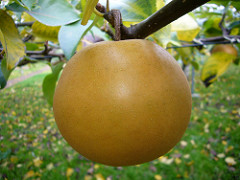A review of the Food and Grocery Code of Conduct (FGCC), a Senate inquiry into supermarket pricing, a year-long Australian Competition and Consumer Commission inquiry, and three state inquiries into supermarket pricing (South Australia, Victoria and Queensland) – 2024 is shaping up as a year of major focus on the big supermarkets and their relationships with the growers who supply them with fresh produce.
It is understandable that many growers – who over the years have seen similar inquiries and reviews come and go with little material improvement to their circumstances – may view this current flurry of political and public attention with scepticism, doubtful that the outcome will be any different this time.
In 2024, however, the level of scrutiny appears more pronounced, with the intensity of focus and sheer volume of individual reviews and inquiries rarely seen amid a cost-of-living crisis, and the surging cost of producing vegetables.
In these circumstances, it is incumbent on AUSVEG to seek to leverage the opportunities presented to push for changes needed to address the margin squeeze threatening the viability of the vegetable, potato and onion growing businesses it represents.
In its submission to the Senate Select Committee on Supermarket Prices, AUSVEG is calling for necessary reforms to address supply chain power imbalances that are contributing to that margin squeeze.
This comes as the latest data from the recent industry sentiment survey conducted by AUSVEG reveals 37 percent of growers are considering leaving the industry in the next 12 months – up from 34 percent mid last year.
Growers are not just dealing with poor retailer behaviour and pricing. High cost of inputs like fertiliser, fuel, power and wages; workforce shortages; increasing burden of regulation and compliance; on top of severe weather events and the threat of biosecurity incursions, are all adding additional challenges to the business operating environment.
Unless addressed, these issues will continue to threaten the viability of vegetable growing business, contribute to significant food waste, threaten the availability of fresh produce for Australian consumers, and ultimately drive retail prices higher as growers leave the industry and supply reduces. With these factors pushing vegetable production costs higher and higher, it’s crucial to ensure growers are receiving sustainable prices for produce.
Unscheduled specials, unauthorised deductions, questionable rejections, lack of written supply agreements, and late cancellations of orders, are just a few of the examples of behaviour that is not permitted under the FGCC but, according to grower feedback, is part of doing business with the supermarkets.
This also highlights that some of the growers AUSVEG has spoken to were not aware these behaviors are not permitted under the FGCC (unless agreed to in writing). Others understood that the behaviours were not permitted, but felt powerless to complain to supermarkets without fear of retribution.
Click here to read the full PR.
For more information:
Lucy Gregg
AUSVEG
Tel.: +61 03 9882 0277
Email: Lucy.gregg@ausveg.com.au
Source: FreshPlaza
Related News & Updates
Become a Member
Join AHT
We’re the peak industry body for Australian Horticulture Trade. Joining AHT helps us advocate for you & the greater good of the industry.
Benefits OF joining
- Representing you, monitoring developments and potential threats to imports & exports
- We work on your behalf on solutions & opportunities to facilitate and maintain trade
- Be kept up to date with important issues affecting horticultural imports & exports



